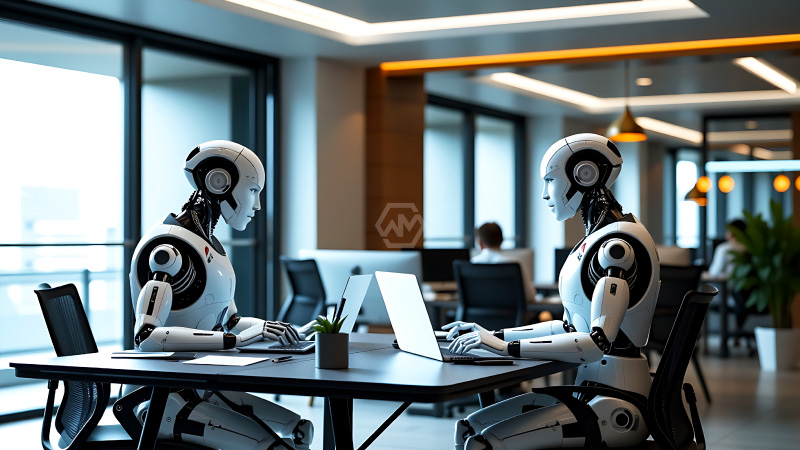- A leading researcher warns AI could make most human jobs obsolete by 2045.
- Roles requiring emotional intelligence and human trust may persist.
- Society must prepare for a future where traditional labor may no longer define value.
Artificial intelligence is advancing at a pace that may soon outstrip human adaptability. According to futurist Adam Dorr, AI and robotics could make the vast majority of current jobs unnecessary by 2045.
Yet, not all professions may disappear. Dorr emphasizes that jobs deeply rooted in emotional intelligence and interpersonal trust—such as politicians, sex workers, sports coaches, and ethicists—could remain intact.
AI May Dominate Work by 2045—But These Human-Centric Jobs Could Endure
The research behind this warning stems from more than 1,500 documented cases of technological disruption. In each instance, once a new tool or process proved superior, it swiftly overtook the status quo. From horses replaced by cars to film cameras replaced by digital ones, history suggests a ruthless efficiency in how innovation reshapes labor. AI, however, is now automating not just physical tasks but complex decision-making and cognitive processes.
While some experts remain optimistic—predicting AI will augment rather than eliminate jobs—others warn that displaced workers may find few meaningful alternatives. MIT economist David Autor foresees a “Mad Max” economy, where only a handful of high-value jobs exist, and many people are excluded from wealth creation. This could drive unprecedented levels of inequality unless societies rethink wealth distribution and social contracts.
The survival of certain professions points to the importance of human qualities that machines cannot easily replicate. Politicians, for instance, function within complex webs of accountability, perception, and persuasion—traits not easily codified. Similarly, ethicists and sex workers navigate moral, emotional, and intimate dimensions of human life, which remain inherently resistant to full automation.
This anticipated disruption has led some futurists to advocate for radical social innovations, such as universal basic income (UBI) or redefining citizenship around contribution outside formal labor. A post-work society may emerge where access to services and resources isn’t tied to employment. But transitioning to such a model would demand global cooperation, political will, and cultural shifts in how we define productivity and purpose.
If AI truly renders most jobs obsolete by 2045, humanity faces not just an economic challenge—but a philosophical one: what do we do when work is no longer the center of life?
“The future is already here — it’s just not evenly distributed.” – William Gibson



